
Coding at Dame Bradbury's School
Published on 10/03/17
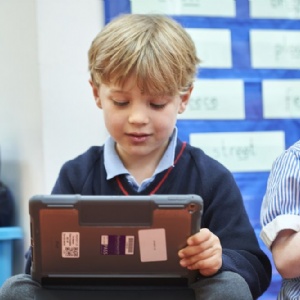
Coding, the process of giving a digital device an instruction or set of instructions to complete an operation, is a language of the future.
As part of British Science Week, the Programming for Primaries event is trying to get schools to do more to get their pupils enjoying coding, and is spreading the message that Year 8 is too late to get engaged in coding.
At the Stephen Perse Foundation, we are coding on a daily basis from the age of three and in all elements of school life – from maths to history and everything in between.
In our Pre-Preps at City, Madingley and Dame Bradbury’s, coding is first taught discretely via a range of programming apps, developing basic, but also key transferrable skills. Much of this is taught through iPad based coding apps from Bee Bot to Tynker, and Daisy the Dinosaur to Kodable.
And skills built through coding go beyond learning how to code – mathematical and communication skills are also learnt.
Keri Lennon, IT co-ordinator and Year 2 teacher, says: “Mathematical skills are crucial for any young learner to develop a sense of direction and special awareness. Such skills form the basis of initial coding apps, including Bee-Bot and Daisy the Dinosaur, where directional arrows or words are used to program a character around space.
“Further up the Pre-Preps, apps such as Blue-Bot and Scratch Jr provide opportunities for navigating coding grids; introducing the concept of co-ordinates and movement to or within a specific space. More advanced apps, including Tynker, require the sequencing of multiple actions and movements to instruct characters to interact in a particular way.
“By incorporating coding activities into Maths sessions, programming skills are taught submissively alongside the introduction or honing of key Mathematical skills.”
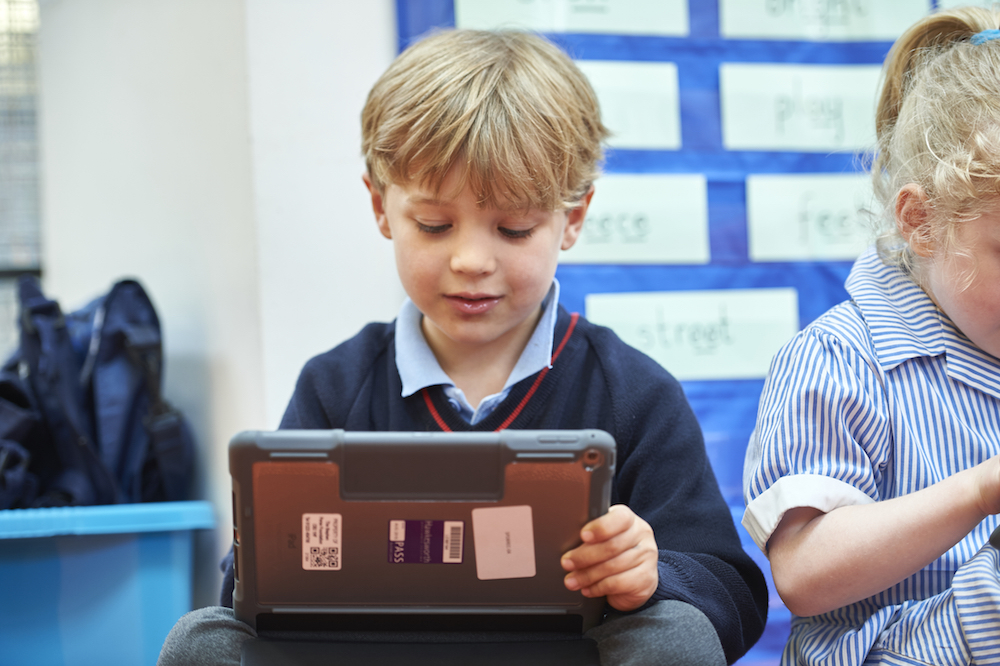
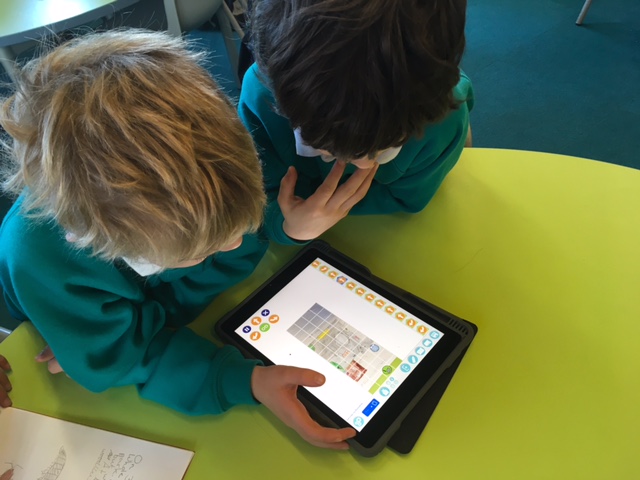
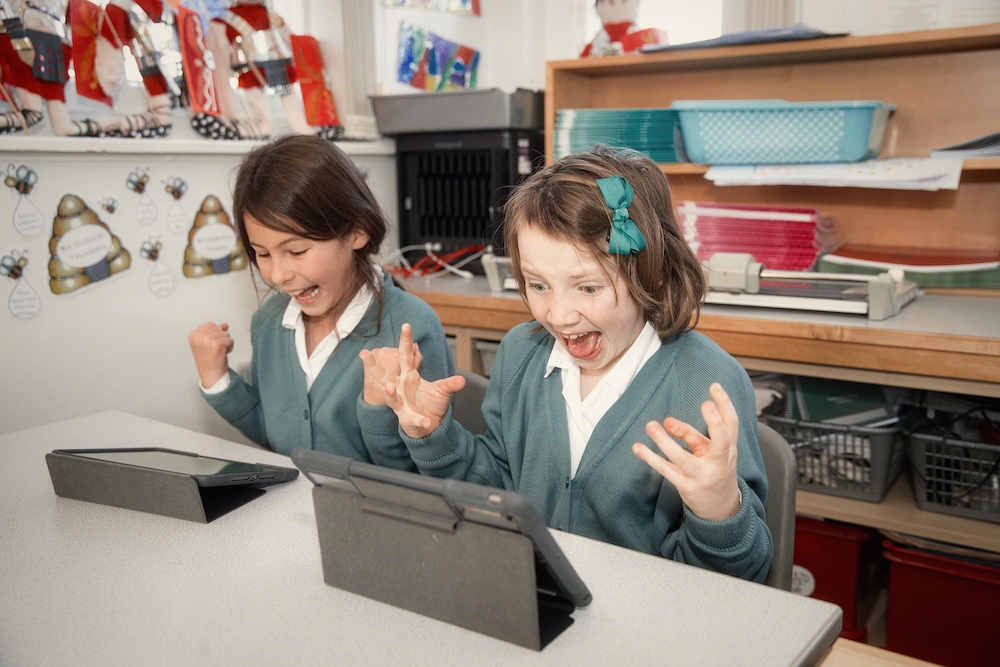
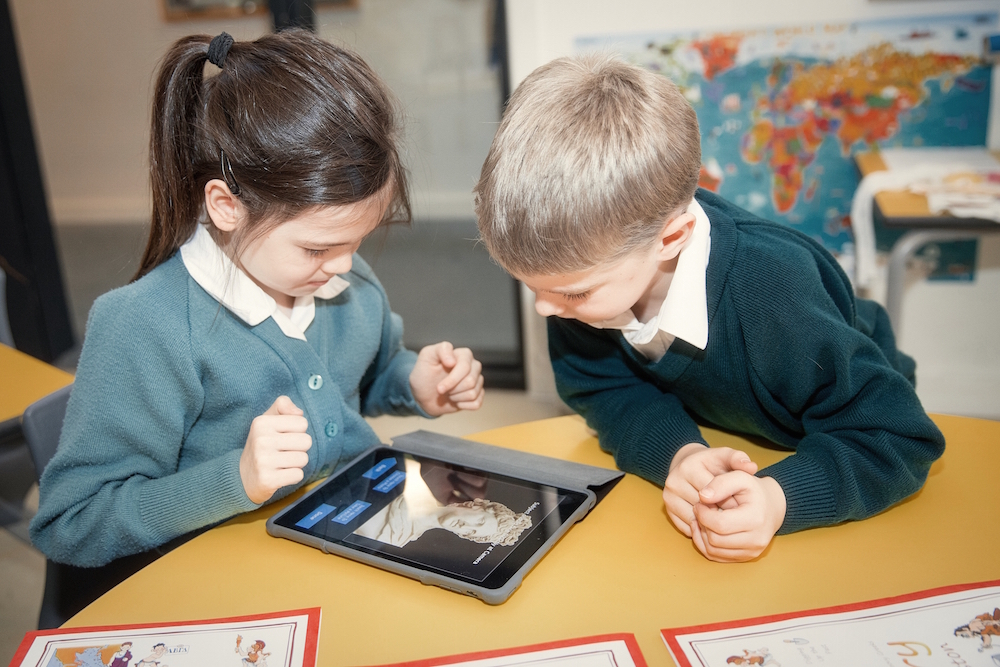
Communication skills are needed for interaction between pupils in order to code what they need, and so learning to give clear and concise instructions is important. For older pupils in our Pre-Preps, precision of language is key to ensuring a task is complete.
Keri adds: “By pairing or grouping pupils to collaborate on coding tasks, clear communication and teamwork is encouraged, whilst providing opportunities to question methods and practice the specific language of code.
“As with any language, the more coding vocabulary is practiced, the more adept a child will become at using it and the easier it will be to build on this at a later point.”
Coding can also provide a unique opportunity for problem solving real life scenarios. Many of the initial apps include cartoon settings and characters and some also provide the option to upload additional images, thus allowing a variety of problems to be staged.
By encouraging techniques such as child led learning and trial and error, children’s curiosity, resilience and questioning skills are extended.
The youngest in the Pre-Preps may, for example, need to work together to find the shortest route for a Bee-Bot to reach a flower and collect pollen, whilst the oldest pupils may use Tynker to instruct an animal to give a tour of is natural habitat, interacting with other characters along the way.
This problem solving approach gives context and relevance to the programming skills learned, whilst turning each activity into an exciting challenge.
In an age of digital communication and increasingly available technological software, the ability to program a device or create a coherent sequence of code is becoming an ever more sought after skill.
Valuable cross-curricular skills are also reinforced through coding sessions and key Thinking Tools and Learning Habits are fostered. At SPF, the basic coding skills taught at Pre-Prep level aim to provide a solid grounding for further study whilst igniting a passion for programming.
Once our pupils reach Junior School, our city and Dame B’s sites both make sure that coding is a part of every day life from the age of six. New technology is embraced and used to enhance education and unlock new ways to learn.
Pupils get involved in designing programs to achieve specific goals, with the problem becoming more and more complex along with the type of procedures used to reach a solution.
This could involve completing challenges within a specific app such as A.L.E.X or Light Bot, or developing coding skills through a game based medium like Kodable or Tynker. Often directional commands are used but blocks of code such as those in Hopscotch or Scratch Junior may be grouped and will then create pictures and develop simple games.
At the city Junior School and Dame B’s, you will find pupils regularly coding through all sorts of subjects including maths, history and art, as well as thematic learning projects such as The Great Wall. And from Year 5 at Dame B’s, pupils get a more intensive coding lesson of 80 minutes per week to put their skills to good use.
By the time the children reach Year 6 they are creating and debugging more complex programs and gaining experience with variables and selection algorithms as part of their programming work. They have also seen a pure programming language like Python as they will get the chance to program external devices attached to Raspberry Pi processor.
As well as their regular lessons detailed above, our Dame B’s pupils can enjoy even more coding as pupils get the expertise of a local engineer with a love for coding who comes in to run a code club, supported by school staff. David Hewlett, Head of Digital Learning at Dame B’s, says: “This is an opportunity to bring expertise from our local community into school to benefit our learners.”